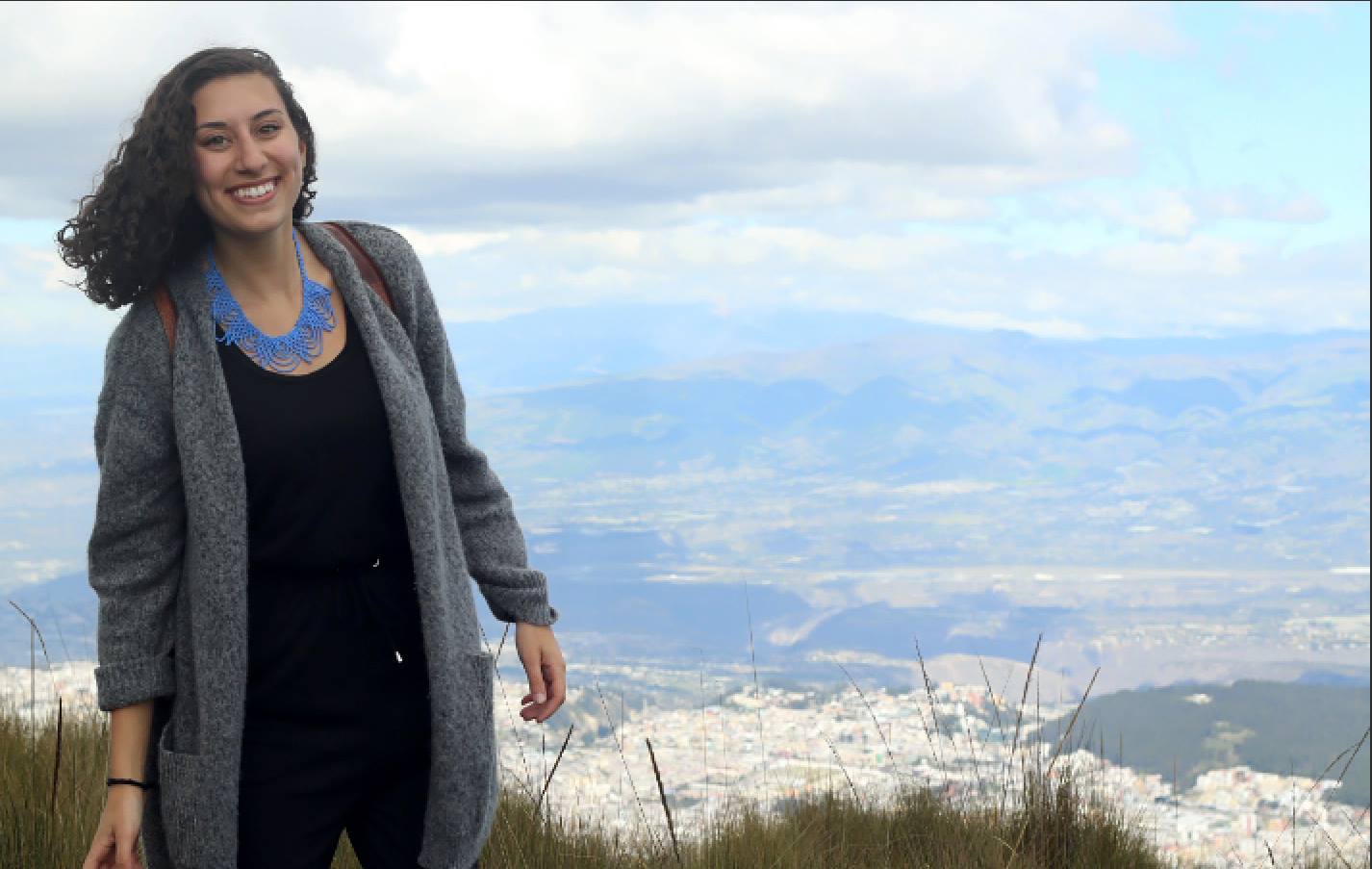When I first arrived in Ecuador, I felt like I was on another planet. Culture shock is a real thing — and wow, was I uncomfortable with it. Four months later, I still feel like I’m on another planet, but a much better, slightly less uncomfortable one.
I’m prepared for how cliché I’m about to seem, but I feel that I’ve personally grown so much in such a short period of time. And no, not in the, “I’ve become so cultured” way that many study abroad students claim.
To start, living in a place where everything is convenient makes people complacent. I learned this quickly when I realized I couldn’t wash whatever article of clothing I needed that day or expect hot water in a matter of seconds.
Having to walk uphill 15 minutes to take the 20-minute bus ride to school every day was, motivationally speaking, not easy, mostly because I’m not a morning person. But many Ecuadorians travel much farther, wake up earlier and work harder to have an education than I did, so I couldn’t complain.
Being here has taught me that there are so many other things to worry about more than my material possessions, which in the past I had obsessed over and even took pride in. I have lived out of two suitcases for four months, and I’ve come to realize that I own too much. I look into my closet every day and think about donating some of the clothes I’m not wearing. Donating my clothing is a small step to a life with less, but at least it’s a start.
I’ve been thrown out of my comfort zone at least once per day, whether that was in dealing with frustrating professors, creepy men at clubs or equally creepy taxi drivers that continue to ask me why I do not have an Ecuadorian boyfriend. I’ve felt at my breaking point many times, which has led to more mental breakdowns than I can count. When uncomfortable or upset, I haven’t been able to turn to the usual comforts I have at home, and this has forced me to cope in a different way and stay in the present. “I’m here now,” I think to myself.
From a human and environmental perspective, I feel more connected to others and the planet. I’ve seen places that are raw and untouched, like the Amazon rainforest and the Galápagos Islands. Appreciating the beauty and not getting caught up in my daily trivial dramas always left me feeling refreshed and grounded when I came back to Quito.
When I’ve told people I’m American, I’ve received mixed responses. I have felt underlying tension and disdain from some, and genuine curiosity from others. Sometimes I’m written off, but other times people find it funny that I’m a “gringa.” They ask me about American culture, political decisions and relations with other countries — and sometimes I’m too ashamed to answer.
These experiences have made me think more realistically about how the world views Americans, as well as influenced me to question my own identity. Do I fit American stereotypes? Do I identify more with where I came from, or from the experiences I’ve shared with others? How much does where you’re from influence who you are?
At one point, I complained about Ecuadorian politics and the inefficiency and corruption of services in the country in the backseat of my friend’s car. In response, one friend said something along the lines of, “Wow, you sound like a real Ecuadorian!” All joking aside, it frustrated me that I had to pay whatever people told me, even if I knew that the price of registering my visa was less last week, or that the cab driver was trying to take advantage of the fact that I wasn’t from here.
I’m finally beginning to feel integrated into Ecuadorian life, and I’m about to be ripped away in two weeks. I will no longer have to deal with long commutes, miscommunication and having my guard up almost all of the time. And this worries me. I’m worried I will become complacent again.
Being immersed in a culture that is often over-looked has been challenging and rewarding. Learning about people’s stories and Ecuador’s rich culture dispelled the stereotypes I had heard prior to coming, and the importance of economic wealth that was stressed in my American education.
My patience was tested, and I truly think I’ve come out of this experience a more easy-going person. Before, when I got frustrated or upset, I didn’t always finish the things I started. But I think my character was tested each time things were difficult, and those are the moments I will remember most vividly.
Sometimes I wished I weren’t here, and I definitely haven’t always been happy. My study abroad experience was far from perfect, and it was not at all glamorous. I didn’t get to jet set on the weekends to Ibiza or dine out in London. But hey, I learned a lot, and that’s all we can ask for, right?





















































































































